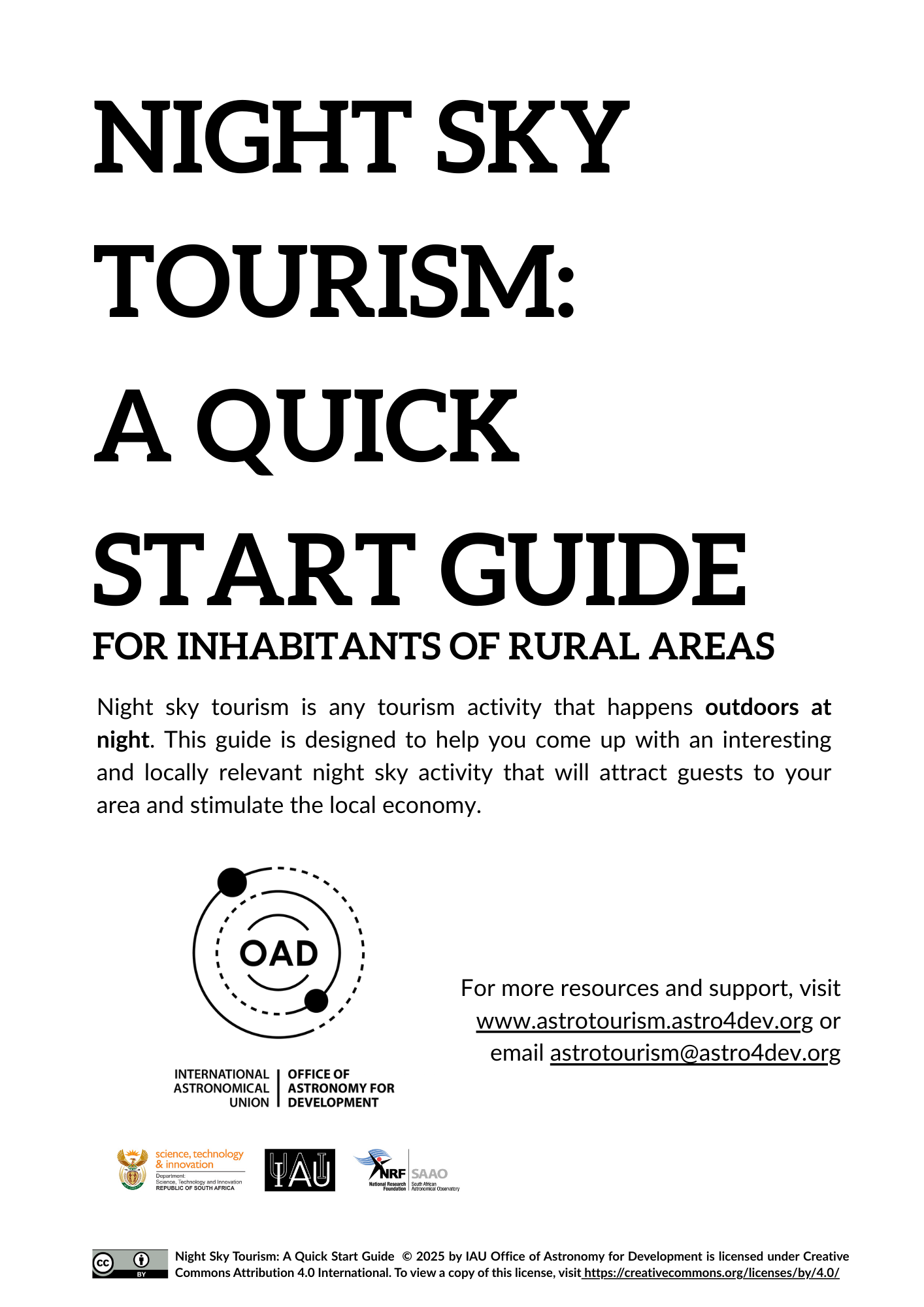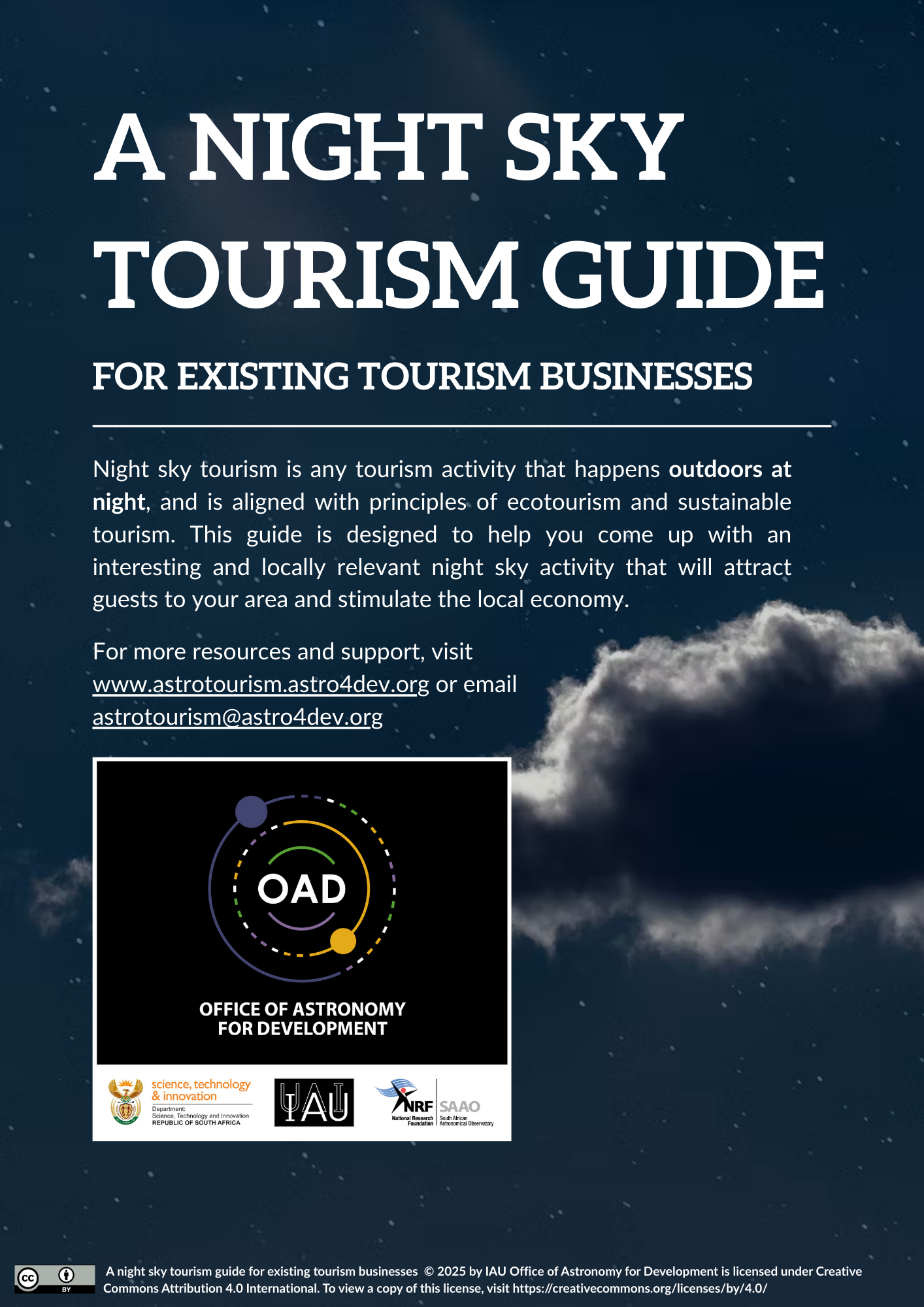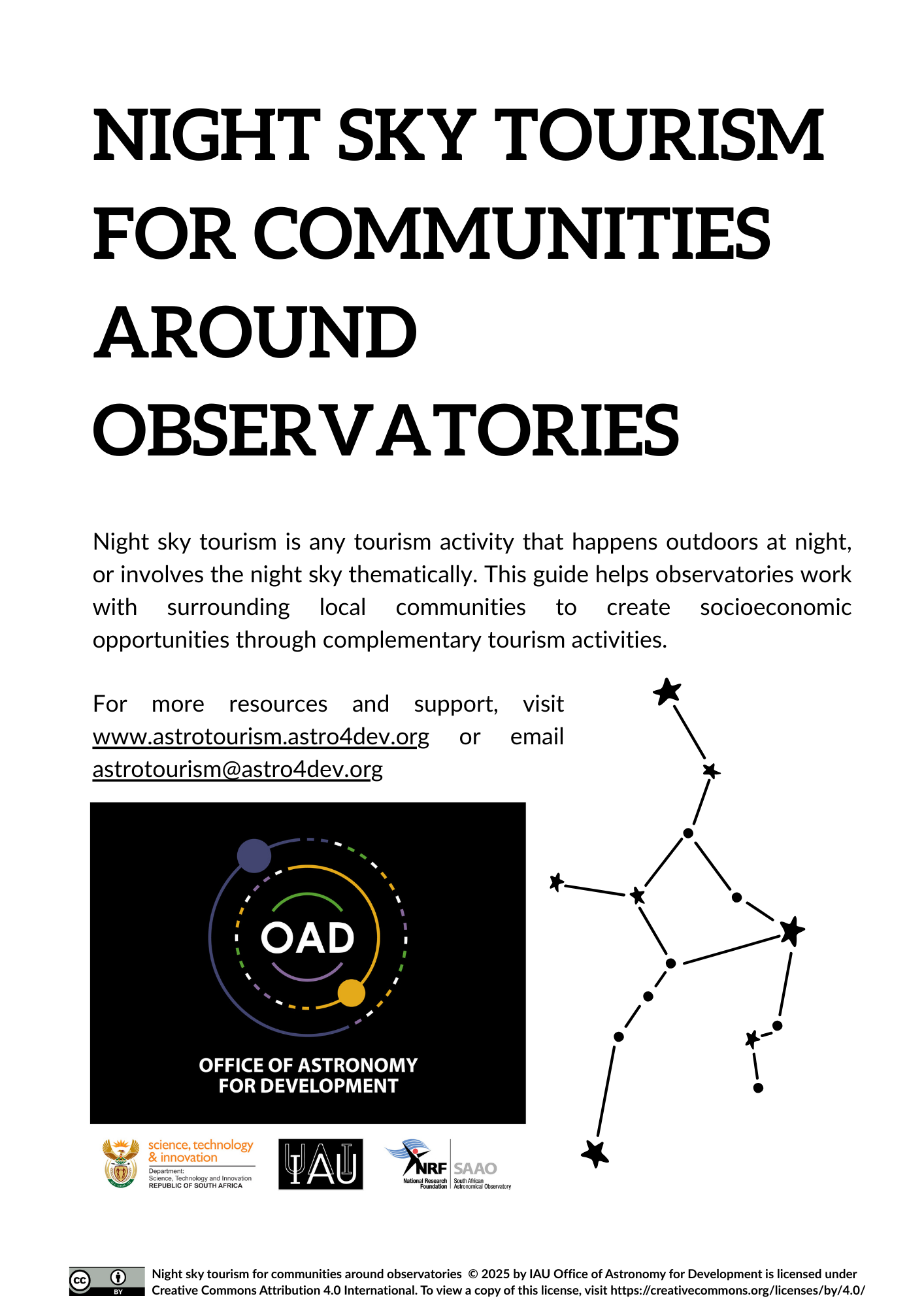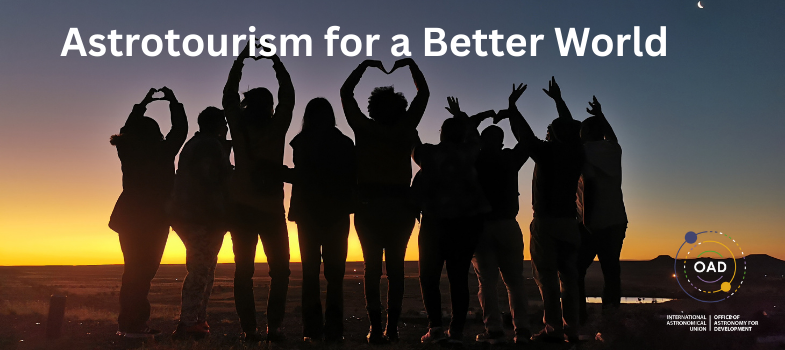Overview of the Astrotourism Resources
Astrotourism has emerged as a powerful cross-sectoral tool to promote science education, sustainable economic development, and cultural exchange. Recognising its potential, the International Astronomical Union’s Office of Astronomy for Development (IAU OAD) has developed a suite of openly accessible resources to support individuals and institutions interested in implementing astrotourism initiatives globally. These resources also encourage individuals and existing businesses to broaden their offerings to include activities that use the night sky as a backdrop, such as food experiences, wellness practices, and cultural exploration.
By broadening the scope of astrotourism activities, the OAD aims to make it easier for communities to get involved. No longer is it necessary to invest in expensive telescopes or astronomy expertise. Instead, the focus is on creating welcoming and immersive experiences that celebrate the night sky as a shared resource. This community-centric approach not only benefits local economies but also preserves invaluable cultural heritage and fosters a deeper connection between people and the natural world.
Our resources are built to leverage the strengths of various stakeholder groups rather than focus solely on the gaps. The resources were created with the following target audiences in mind:
- Individuals: This resource is targeted at inhabitants of rural, socioeconomically underdeveloped areas. Their strengths are that they generally live in areas with abundant, free dark skies, and possess distinct cultural elements like food, rituals, and way of life.
- Existing Businesses: This resource is targeted at existing tourism businesses who want to implement astrotourism. Their strengths are existing tourism skills, infrastructure, and established logistical elements of experience.
- Communities around Observatories: This resource is targeted at communities around observatories. Observatories can help surrounding community inhabitants/organisations create experiences to complement the observatory’s offerings. The observatory’s strengths are their infrastructure, connection or proximity to community, technical expertise and knowledge, links to government.



Click here to go to the module quiz
